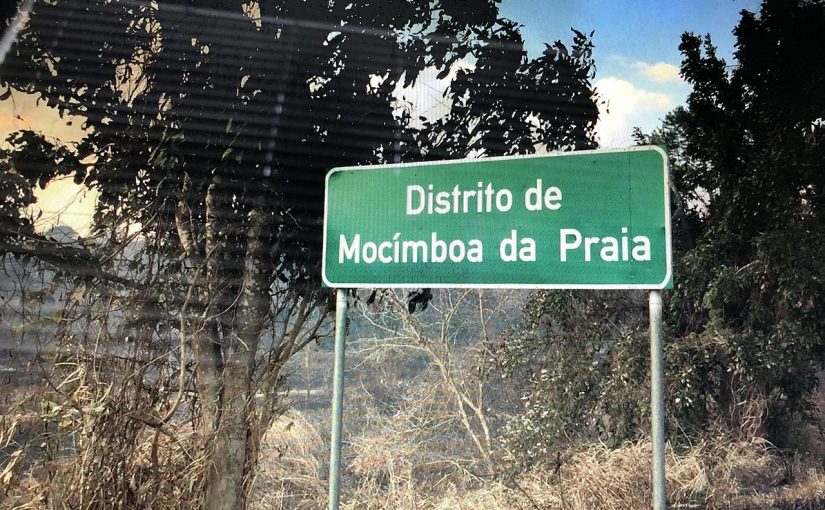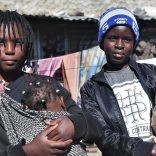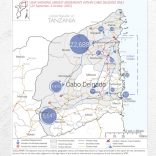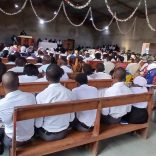Mozambique: Multi-sectoral team to curb street begging, support the homeless in Maputo - Watch
Mozambique: Rape victim is afraid to tell her husband that she had a child with a terrorist

FILE PHOTO - Sign of Mocímboa da Praia, Mozambiqu. [File photo: Wikimedia Commons / VOA]
A 28-year-old woman who suffered sexual abuse while being held captive for almost two years by terrorist groups in Mocímboa da Praia and has a 6-month-old child by one of the rebels, says she does not know how to explain the situation to her husband.
“I don’t know how I’m going to explain the child to my real husband,” the young woman told Lusa, sitting with her son in her lap near the Pemba Sports Complex, a space that has welcomed people from Cabo Delgado to the provincial capital.
The young woman, whose identity is not being revealed for security reasons, experienced the same tragedy as hundreds of women who were kidnapped by the terrorist groups active in Cabo Delgado since 2017.
The non-governmental organisation Human Rights Watch (HRW) estimated, in December, 2021, that close to 600 women had disappeared in Cabo Delgado since 2018, warning that many victims had been abused, enslaved and even sold to “foreign fighters” for amounts varying between €550 and €1,600.
The 28-year-old’s forced union lasted almost two years, and the trauma of someone who lived “a nightmare” in the woods of Mocímboa da Praia, her homeland, is still visible.
“There [in captivity] men show no mercy; you are everyone’s wife, I went through that. If you refuse, they beat you,” she laments in tears. She fears for the future of the 6-month-old child, the result of one of several rapes she was subjected to.
“They didn’t ask. All that interested them was their own sexual satisfaction,” she adds.
In addition to the trauma, the young woman, already suffering from malnutrition as a result of an “undignified” life in captivity, faces the absolute dispossession of those who lost everything when armed groups intensified their attacks in Mocímboa da Praia in June, 2020.
“There was famine in the bush – the terrorists have no food. We ate baby food every day, as a result of which my son and I are both anaemic,” the young woman says, adding that her first daughter, also taken into captivity by the terrorists, died as a result of the appalling conditions suffered in the woods.
Distant relatives who are preparing to welcome her in the safer district of Montepuez, also live on the threshold of poverty, but at least, there the young woman will not live under the threat of gunfire.
She managed to flee the armed group in March of this year during one of several relocations forced on them by government forces but, despite attempts, has still not managed to reunite with her real husband, from whom she separated on the day of the attack in June, 2020.
“I won’t be able to explain to him what happened and how I have this child,” the young woman repeats, stressing, however, that her affection for her 6-month-old son is “unconditional”.
Cabo Delgado province, in northern Mozambique, is rich in natural gas, but has been terrorized since 2017 by armed rebels, with some attacks claimed by the Islamic State extremist group.
According to the International Organisation for Migration (IOM), about 784,000 persons have been internally displaced by the conflict, which has killed about 4,000, according to the ACLED conflict registry project.
Since July 2021, an offensive by government troops, with the support of Rwandan and later Southern African Development Community (SADC) troops, has recovered a number of areas from rebel control, but their flight has led to new attacks in districts through which they have passed or taken up temporary refuge.












Leave a Reply
Be the First to Comment!
You must be logged in to post a comment.
You must be logged in to post a comment.